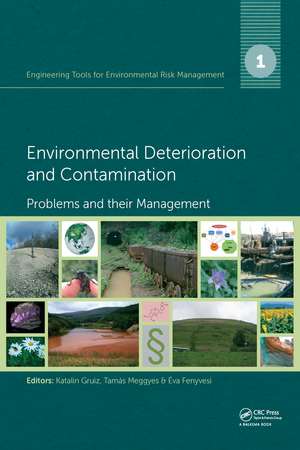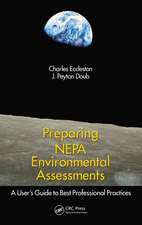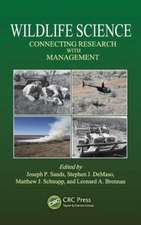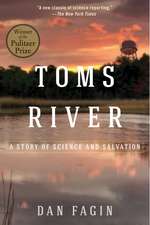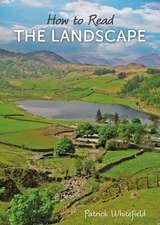Engineering Tools for Environmental Risk Management: 1. Environmental Deterioration and Contamination - Problems and their Management: Engineering Tools for Environmental Risk Management
Editat de Katalin Gruiz, Tamas Meggyes, Eva Fenyvesien Limba Engleză Hardback – 8 aug 2014
• types and management of environmental deterioration, particularly pollution;
• environmental toxicology as a versatile tool in monitoring and risk management;
• risk assessment of chemical substances and contaminated land;
• risk reduction measures, focusing on bio- and ecotechnologies;
• case studies demonstrating the interaction between regulation, management and engineering and the individual application of engineering tools.
The book series focuses on the state of knowledge concerning the environment and its conscious and structured application in environmental engineering, management, decision making and legislation. This first volume provides an overview of the behavior and function of the healthy environment and the capacity of the ecosystem to serve mankind and to compensate for adverse changes. The prime causes of these changes are production and use of chemical substances, abandoned and contaminated land, intensive agriculture, mining and the complex problem of waste.
The first volume establishes the foundation of the holistic approach used in a progressive environmental protection by:
• striking a balance between nature’s needs and engineering capabilities;
• understanding the interaction between regulation, management and engineering;
• applying novel technologies and innovative scientifi c and engineering tools.
The aggregated information and knowledge disseminated in this volume provides a broad perspective for engineers to adjust their tools to the best management practices and for managers and decision makers to fi nd synergy between their goals and existing engineering solutions.
This book series focuses on the state of knowledge about the environment and its conscious and structured application in environmental engineering, management and decision making.
| Toate formatele și edițiile | Preț | Express |
|---|---|---|
| Paperback (2) | 325.06 lei 6-8 săpt. | |
| CRC Press – 30 iun 2020 | 325.06 lei 6-8 săpt. | |
| CRC Press – 30 iun 2020 | 326.00 lei 6-8 săpt. | |
| Hardback (2) | 887.17 lei 6-8 săpt. | |
| CRC Press – 8 aug 2014 | 887.17 lei 6-8 săpt. | |
| CRC Press – 27 apr 2015 | 1138.37 lei 6-8 săpt. |
Preț: 887.17 lei
Preț vechi: 1222.63 lei
-27% Nou
Puncte Express: 1331
Preț estimativ în valută:
169.75€ • 177.26$ • 140.18£
169.75€ • 177.26$ • 140.18£
Carte tipărită la comandă
Livrare economică 16-30 aprilie
Preluare comenzi: 021 569.72.76
Specificații
ISBN-13: 9781138001541
ISBN-10: 1138001546
Pagini: 478
Ilustrații: illustrations
Dimensiuni: 174 x 246 x 25 mm
Greutate: 1.1 kg
Ediția:1
Editura: CRC Press
Colecția CRC Press
Seria Engineering Tools for Environmental Risk Management
ISBN-10: 1138001546
Pagini: 478
Ilustrații: illustrations
Dimensiuni: 174 x 246 x 25 mm
Greutate: 1.1 kg
Ediția:1
Editura: CRC Press
Colecția CRC Press
Seria Engineering Tools for Environmental Risk Management
Public țintă
PostgraduateCuprins
Contents
1. Environmental problems in general
2. Threat by chemical substances: legislation, production, use and waste
3. Abandoned and Contaminated Land
4. Environmental Risk of Chemical Agriculture
5. Environmental Risk of Mining
6. Environmental risk of waste and its management
7. Efficient environmental risk management
8. Management of Contaminated Land
9. Site specific risk assessment and management of point and diffuse sources
10. Scientific and engineering improvement of environmental risk management
11, Risk management from planning to verification
12. IT tools in environmental management
1. Environmental problems in general
2. Threat by chemical substances: legislation, production, use and waste
3. Abandoned and Contaminated Land
4. Environmental Risk of Chemical Agriculture
5. Environmental Risk of Mining
6. Environmental risk of waste and its management
7. Efficient environmental risk management
8. Management of Contaminated Land
9. Site specific risk assessment and management of point and diffuse sources
10. Scientific and engineering improvement of environmental risk management
11, Risk management from planning to verification
12. IT tools in environmental management
Notă biografică
Katalin Gruiz graduated in chemical engineering at Budapest University of Technology and Economics in 1975, received her doctorate in bioengineering and her Ph.D. in environmental engineering. Her main fields of activities are: teaching, consulting, research and development of engineering tools for risk-based environmental management, development and use of innovative technologies such as special environmental toxicity assays, integrated monitoring methods, biological and ecological remediation technologies for soils and waters, both for regulatory and engineering purposes. Prof. Gruiz has published 35 papers, 25 book chapters, more than hundred conference papers, edited 6 books and a special journal edition. She has coordinated a number of Hungarian research projects and participated in European ones. Gruiz is a member of the REACH Risk Assessment Committee of the European Chemicals Agency. She is a full time associate professor at Budapest University of Technology and Economics and heads the research group of Environmental Microbiology and Biotechnology.
Tamás Meggyes is a research co-ordinator specialising in research and book projects in environmental engineering. His work focuses on fluid mechanics, hydraulic transport of solids, jet devices, landfill engineering, groundwater remediation, tailings facilities and riskbased environmental management. He contributed to and organised several international conferences and national and European integrated research projects in Hungary, Germany, United Kingdom and USA. Tamás Meggyes was Europe editor of the Land Contamination and Reclamation journal in the UK and a reviewer of several environmental journals. He was invited by the EU as an expert evaluator to assess research applications and by Samarco Mining Company, Brazil, as a tailings management expert. In 2007, he was named Visiting Professor of Built Environment Sustainability at the University of Wolverhampton, UK. He has published 130 papers including eleven books and holds a doctor’s title in fluid mechanics and a Ph.D. degree in landfill engineering from Miskolc University, Hungary.
Éva Fenyvesi is a senior scientist, a founding member of CycloLab Cyclodextrin Research and Development Ltd. She graduated as a chemist and received her PhD in chemical technology at Eötvös University of Natural Sciences, Budapest. She is experienced in the preparation and application of cyclodextrin polymers, in environmental application of cyclodextrins and in gas chromatography. She participated in several national and international research projects, in the development of various environmental technologies applying cyclodextrins. She is author or co-author of over 50 scientific papers, 3 chapters in monographs, over 50 conference presentations and 14 patents. She is an editor of the Cyclodextrin News, the monthly periodical on cyclodextrins.
Tamás Meggyes is a research co-ordinator specialising in research and book projects in environmental engineering. His work focuses on fluid mechanics, hydraulic transport of solids, jet devices, landfill engineering, groundwater remediation, tailings facilities and riskbased environmental management. He contributed to and organised several international conferences and national and European integrated research projects in Hungary, Germany, United Kingdom and USA. Tamás Meggyes was Europe editor of the Land Contamination and Reclamation journal in the UK and a reviewer of several environmental journals. He was invited by the EU as an expert evaluator to assess research applications and by Samarco Mining Company, Brazil, as a tailings management expert. In 2007, he was named Visiting Professor of Built Environment Sustainability at the University of Wolverhampton, UK. He has published 130 papers including eleven books and holds a doctor’s title in fluid mechanics and a Ph.D. degree in landfill engineering from Miskolc University, Hungary.
Éva Fenyvesi is a senior scientist, a founding member of CycloLab Cyclodextrin Research and Development Ltd. She graduated as a chemist and received her PhD in chemical technology at Eötvös University of Natural Sciences, Budapest. She is experienced in the preparation and application of cyclodextrin polymers, in environmental application of cyclodextrins and in gas chromatography. She participated in several national and international research projects, in the development of various environmental technologies applying cyclodextrins. She is author or co-author of over 50 scientific papers, 3 chapters in monographs, over 50 conference presentations and 14 patents. She is an editor of the Cyclodextrin News, the monthly periodical on cyclodextrins.
Recenzii
"Volume 1 in the Engineering Tools for Environment Risk Management series, this book addresses engineering, management and legislation tools for caring for the environment. As it is the first volume, the book begins with a look at the important functions of a healthy ecosystem. The contributing authors then explore ways in which chemical substances, contaminated land, intensive agriculture, mining and waste management have changed the landscape and made it less able to provide important services to humans. Volume 1 concludes with an introduction to the foundations of progressive environmental protection including balancing the needs of nature and the desires of man, understanding how regulation can be used to your advantage, and the potential for the use of novel technologies to create a more promising future for the environment."
—Ringgold, Inc. Book News, February 2015
—Ringgold, Inc. Book News, February 2015
Descriere
Industrial, agricultural, residential land uses and the connected discharge of chemical substances cause environmental problems world-wide. This volume provides an overview on the behavior and function of the healthy environment, the capacity of the ecosystem to serve humanity and compensate for adverse changes. The prime contributors to these changes such as production and use of chemical substances, abandoned and contaminated land, chemical agriculture, mining and the complex waste problem are introduced.
The focus of this book is environmental knowledge and its conscious and structured application in environmental management and decision making.
The focus of this book is environmental knowledge and its conscious and structured application in environmental management and decision making.
